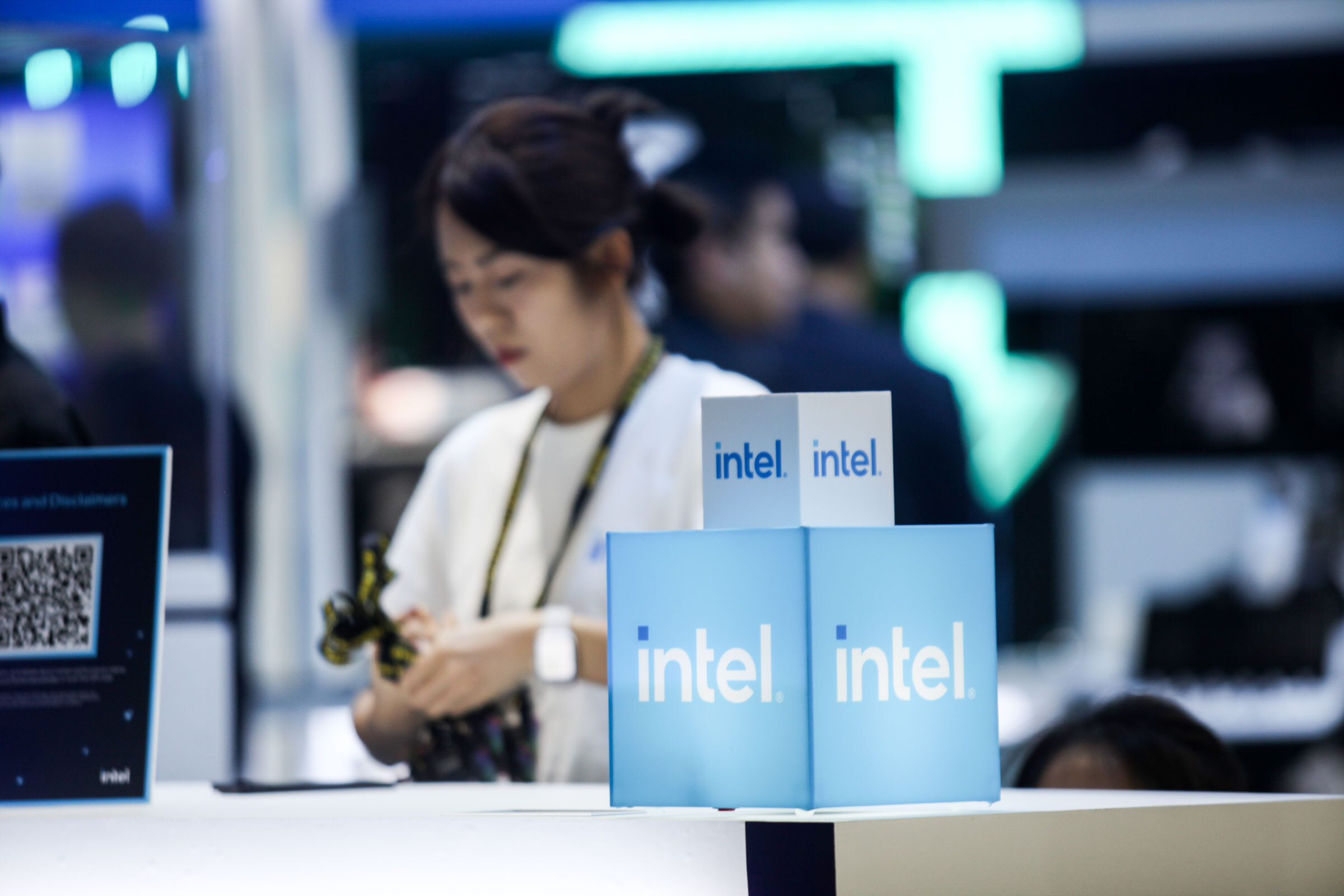"I didn't pay a dime to Intel, but received $11 billion worth of stock. All of this belongs to America," he wrote.
Trump affirmed his intention to "continue making such deals for the country." He explained his desire to "see company share prices rise, making America richer and creating more jobs."
Earlier, in an interview with CNBC, White House economic advisor Kevin Hassett was asked if this deal signaled the US government's effort to acquire stakes in subsidized industries, or in chip and AI companies like AMD or TSMC that are also receiving support. Hassett confirmed that similar deals would follow.
"The president has made it clear since his campaign that he thinks America should build a national investment fund. So I'm sure there will be other deals, in one industry or another," Hassett stated.
 |
The Intel logo at Computex 2024 in Taipei, Taiwan in 6/2024. Photo: Khuong Nha |
The Intel logo at Computex 2024 in Taipei, Taiwan in 6/2024. Photo: Khuong Nha
On 22/8, Trump announced the government would receive a 9.9% stake in Intel by converting subsidies into shares. Under the agreement, the White House acquired 9.9% of Intel for $8.9 billion, equivalent to $20.4 per share. This price was $4 lower than the stock's closing price on 22/8. The current value of the stake is approximately $11 billion.
To purchase 433.3 million shares, the White House used $5.7 billion from the CHIPS Act and $3.2 billion allocated to Intel under the Secure Enclave program. Both programs were initiated under former President Joe Biden.
This agreement eased tensions between Trump and Intel CEO Lip-Bu Tan, following Trump's recent call for Tan's resignation due to alleged conflicts of interest. It also provides Intel with additional capital for constructing or expanding US-based factories.
In February, Trump signed an executive order to establish a national investment fund within 12 months. The order provided no specifics, only requiring the US Treasury and Commerce departments to submit a plan for the fund. The plan should include "fundraising mechanisms, investment strategies, structure, and governance model."
Ha Thu (via Reuters, CNBC)












